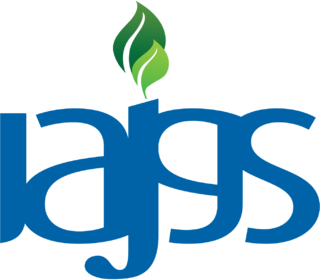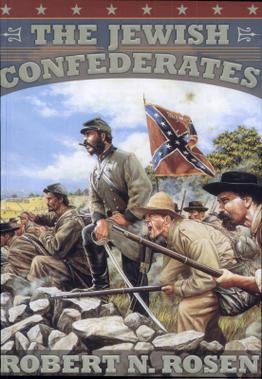Related Research Articles

Boca Raton is a city in Palm Beach County, Florida, United States. The population was 97,422 in the 2020 census and it ranked as the 23rd-largest city in Florida in 2022. However, many people with a Boca Raton postal address live outside of municipal boundaries, such as in West Boca Raton. As a business center, the city also experiences significant daytime population increases. Boca Raton is 45 miles (72 km) north of Miami and is a principal city of the Miami metropolitan area, which had a population of 6,138,333 at the 2020 United States Census.

Micanopy is a town in Alachua County, Florida, United States, located south of Gainesville. It is part of the Gainesville metropolitan area. The population as of the 2020 census was 648.

East Florida was a colony of Great Britain from 1763 to 1783 and a province of the Spanish Empire from 1783 to 1821. The British gained control over Spanish Florida in 1763 as part of the Treaty of Paris which ended the Seven Years' War. Deciding that the colony was too large to administer as a single unit, British officials divided Florida into two colonies separated by the Apalachicola River; the colony of East Florida, with its capital located in St. Augustine and West Florida with its capital located in Pensacola. East Florida was much larger and comprised the bulk of the former Spanish colony and most of the current state of Florida. It had also been the most populated region of Spanish Florida, but before control was transferred to Britain, most residents – including virtually everyone in St. Augustine – left the territory, with most migrating to Cuba.
Historically black colleges and universities (HBCUs) are institutions of higher education in the United States that were established before the Civil Rights Act of 1964 with the intention of primarily serving African Americans. Most of these institutions were founded during the Reconstruction era after the Civil War and are concentrated in the Southern United States. During the period of racial segregation in the United States, the majority of American institutions of higher education served predominantly white students, and disqualified or limited black American enrollment. Later on some universities, either after expanding their inclusion of black people and African Americans into their institutions or gaining the status of minority-serving institution, became Predominantly Black Institutions (PBIs).

The Southern Historical Society was an American organization founded to preserve archival materials related to the government of the Confederate States of America and to document the history of the American Civil War. The society was organized on May 1, 1869, in New Orleans, Louisiana. The society published 52 volumes of its Southern Historical Society Papers which helped preserve valuable historical resources.

The culture of the Southern United States, Southern culture, or Southern heritage, is a subculture of the United States. From its many cultural influences, the South developed its own unique customs, dialects, arts, literature, cuisine, dance, and music. The combination of its unique history and the fact that many Southerners maintain—and even nurture—an identity separate from the rest of the country has led to it being one of the most studied and written-about regions of the United States.

Cracker, sometimes cracka or white cracker, is a racial epithet directed towards white people, used especially with regard to poor rural whites in the Southern United States. Although commonly a pejorative, it is also used in a neutral context, particularly in reference to a native of Florida or Georgia.

HistoryMiami Museum, formerly known as the Historical Museum of Southern Florida, is a museum located in Downtown Miami, Florida, United States. HistoryMiami Museum is the largest history museum in the State of Florida. HistoryMiami houses four permanent galleries and up to three traveling exhibits, Archives and Research Center, the South Florida Folklife Center, the Education Center, and City Tours program.

Jewish American Heritage Month (JAHM) is an annual recognition and celebration of American Jews' achievements and contributions to the United States of America during the month of May.

Henry Abramson is a Canadian historian who is the dean of the Lander College of Arts and Sciences in Flatbush, New York. Before that, he served as the Dean for Academic Affairs and Student Services at Touro College's Miami branch. He is notable for his teachings on Jewish history and Judaism as a religion.

The St. Augustine movement was a part of the wider Civil Rights Movement, taking place in St. Augustine, Florida from 1963 to 1964. It was a major event in the city's long history and had a role in the passage of the Civil Rights Act of 1964.

The International Association of Jewish Genealogical Societies, Inc. (IAJGS) is an independent non-profit umbrella organization coordinating the activities and annual conference of 84 Jewish genealogical societies worldwide.

Jewish copper plates of Cochin, also known as Cochin plates of Bhaskara Ravi-varman, is a royal charter issued by the Chera Perumal king of Kerala, south India to Joseph Rabban, a Jewish merchant magnate of Kodungallur. The charter shows the status and importance of the Jewish colony in Kodungallur (Cranganore) near Cochin on the Malabar Coast.
The Florida Historical Quarterly is an American academic journal, published four times a year by the Florida Historical Society.
The Jewish American Society for Historic Preservation (JASHP) is an American non-profit 501(c)(3) volunteer historical society. The society locates sites of American and Jewish historical interest and importance. It works with local community organizations, synagogues, churches, historical societies, governments and individuals, to erect interpretive historical markers that help illuminate the American-Jewish experience and reflect on the commonality of being American.

The 1968 United States presidential election in Florida was held on November 5, 1968. Florida voters chose fourteen electors, or representatives to the Electoral College, who voted for president and vice president.

Jews have inhabited the Southern United States since the late 1600s and have contributed to the vibrant cultural and historical legacy of the South in many ways. Although the United States' Jewish population is more often thought to be concentrated in Northern cities, such as New York, thousands of Jewish immigrants chose to settle in the more rural Southern United States forming tight-knit religious communities and creating a unique cultural identity. Jewish immigrants came to the South from various countries, backgrounds and religious traditions within Judaism. Major Jewish communities include Memphis, Tennessee; Houston, Texas; Savannah, Georgia; Charleston, South Carolina; Charlottesville, Virginia; and Wilmington, North Carolina. Jews participated in many important events in Southern history, such as the Civil War, the World Wars, and the civil rights movement.

The Jewish Confederates is a 2001 history book authored by Robert N. Rosen about Jewish citizens of the Confederate States of America who served in the Confederate States Army (CSA) during the American Civil War of 1861–1865. As they made up just 0.2% of the CSA, their story had not been heavily researched before Rosen, a Jewish lawyer in Charleston, South Carolina, with a master's degree in history from Harvard University, authored the book. It received both praise and criticism in many academic journals. Rosen has written two more books about the city of Charleston.
References
- ↑ SOUTHERN LIVING, JEWISH-STYLE, Jerusalem Post - Jan 16, 1990
- ↑ RESEARCHERS UNCOVERING JEWISH HISTORY IN FLORIDA, South Florida Sun - Sentinel, Oct 31, 1986
- ↑ "The Rambler" . Retrieved 5 March 2024.